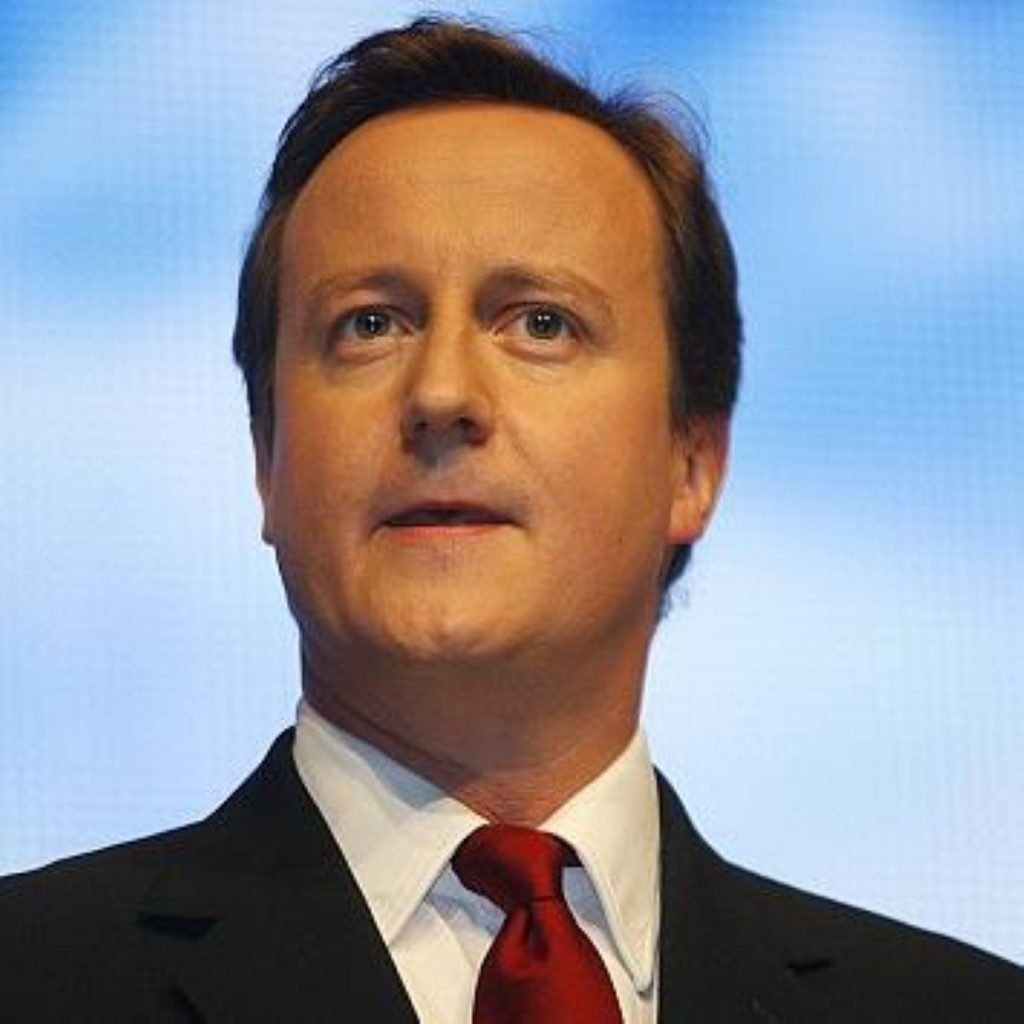Cameron: ‘Big society’ is my mission in politics
By Ian Dunt
David Cameron has launched a resolute defence of his ‘big society’ agenda, stressing that the move is not a cover for cuts.
The speech comes after a damaging few weeks for the prime minister’s idea. Liverpool council, one of the early cheerleaders for the scheme, backed out of the project and Dame Elisabeth Hoodless, outgoing head of the Community Service Volunteers (CSV) organisation, argued that the project was being poorly delivered.
The developments put Downing Street on the defensive, prompting a Sunday newspaper article from Mr Cameron and a keynote speech today.


“Let me make one thing absolutely clear: I’m not going to back down from what I believe in just because of a few bad headlines,” Mr Cameron insisted.
Analysis: Why won’t Britain fall in love with the ‘big society’?
“The ‘big society’ is my mission in politics. It’s what I want us – as a country – to build. And I’m going to fight for it every day, because the big society is here to stay.”
Most critics of the ‘big society’ agenda argue that cuts have made it almost impossible to implement, by sucking away funds from community groups.
But many senior Tories, including cheerleader Steve Hilton, Mr Cameron’s director of strategy, believe the agenda complements the coalition arguments about the size of the state and offers the electorate a more wholesome message than one simply based around spending cuts.
Issue of the Day: The ‘big society’
“I don’t want the story of this government to be just an economic recovery,” Mr Cameron continued.
“I want it to be a social recovery too. As I’ve said many times, our society is broken and we need to fix it – and the ‘big society’ will help us do that.
“Too many people have stopped taking responsibility for their lives and for the people around them. Now I don’t think this has happened because we’ve somehow become bad people. I think at its core, it’s the consequence of years and years of big government.
“As the state got bigger and more powerful, it took away from people more and more things that they should and could be doing for themselves, for their families and their neighbours,” he added.
“The big society is not a government initiative. It’s about giving you the initiative – to take control of your life and work with friends, neighbours and colleagues to improve things around you.”
Mr Cameron insisted that the ‘big society’ was not a cover for spending cuts, saying that he has believed in it from before the financial crisis.
“I’ve been talking about this for the last five years as leader of the Conservative party,” he argued.
“I was talking about it when public spending was going up, I will be talking about it when public spending is flat and I will talk about it when public spending is going down. It is not a cover for anything, it’s a good thing to try and build a bigger and stronger society, whatever is happening to public spending.”
Even in the hall Mr Cameron could not excape criticism of the plan, however, with Stephen Bubb, chief executive of the Association of Chief Executives of Voluntary Organisations, hitting out at the damage done to charities because of spending cuts.
“What is bad is what is happening to our charities and voluntary organisations,” he told the prime minister.
“When I see them cut, the work they do in vulnerable communities cut – that is bad. I think you need to think about how you say to local councils ‘the cuts you’re making to voluntary organisations are damaging’.”
Mr Cameron replied: “We have asked local authorities to reduce their budgets. We have to do that but the local authorities do have a choice about how they do that.”
The speech coincided with a series of economic concessions setting up funding streams for voluntary work.
A £100 million transition fund is being created to help charities fight for government contracts on an equal footing with private companies.
A ‘big society’ bank will also be set up, with reserves from Britain’s high street banks, to fund projects.
The moves appear to tacitly accept the argument that voluntary services cannot step up to the role demanded of them while local authorities continue to cut their budgets.
Labour’s Tessa Jowell responded: “David Cameron can try as many relaunches as he likes. It doesn’t change the fact that by cutting too far and too fast, and hitting the charities and community organisations that do so much to support volunteering and social action across the country, it’s David Cameron who is undermining what he likes to call the ‘big society’.”
TUC general secretary Brendan Barber hit back at the speech, saying it reflected the delusions of the prime minister.
“The most worrying thing about the Big Society is that Prime Minister truly believes that polices of slash, burn and sack will make all our lives better, and not just for those for whom he is planning tax cuts,” he said.
“The logic of this is that his ideal society is Somalia where the state barely exists, and his hell the Scandinavian societies that the rest of us admire for combining quality services, equality and dynamic economies.”
Rank-and-file Tories have never been entirely comfortable with the ‘big society’. Many of them found it impossible to sell on the doorstep during the election campaign and several prominent figures on the right of the party believe that high command’s obsession with the idea was partly responsible for the party’s failure to secure a majority.
But party strategists believe it is a suitably centrist policy package which can unite the two coalition partners and provide an alternative narrative to the relentless focus on cuts.









